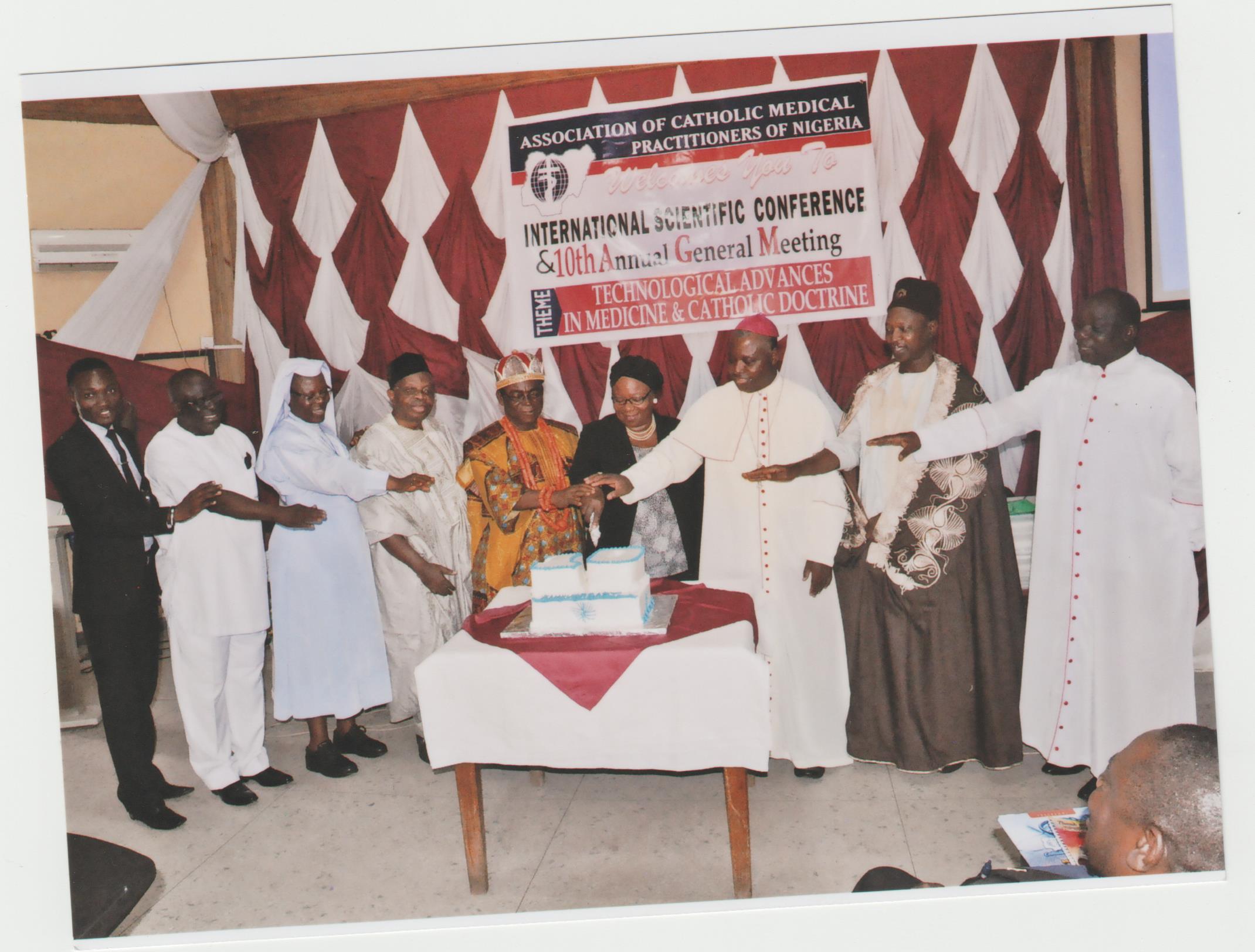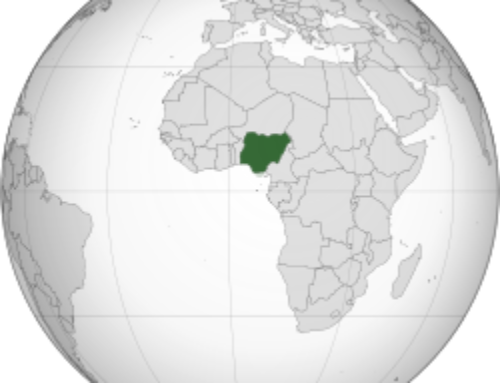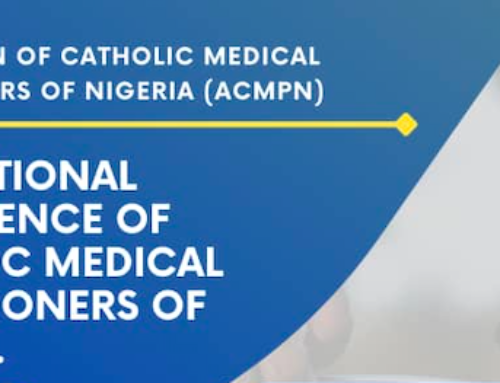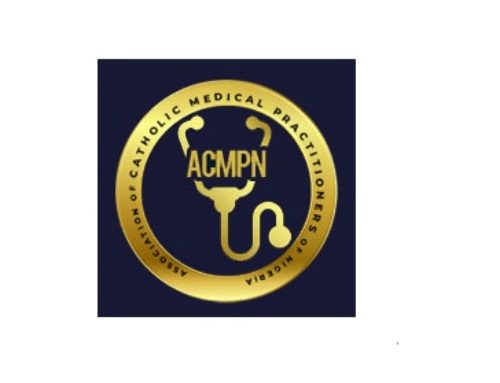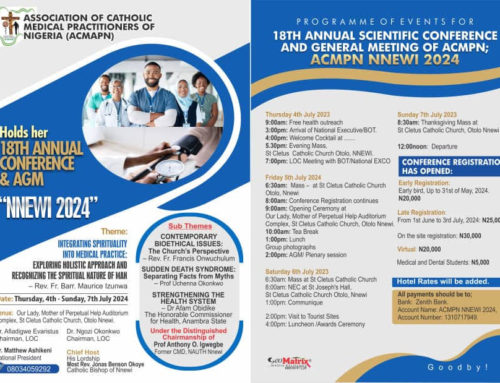ASSOCIATION OF CATHOLIC MEDICAL PRACTITIONERS OF NIGERIA (ACMPN)
Genetically-Modified Organisms: How Harmful, Harmless or Beneficial?
COMMUNIQUE
PREAMBLE
The Association of Catholic Medical Practitioners of Nigeria (ACMPN) held its 12th scientific conference and annual general meeting with the theme Genetically-Modified Organisms: How Harmful, Harmless or Beneficial? It took place at the Catholic Institute of West Africa (CIWA), Port Harcourt from 6th to 8th July, 2017. A total of 77 participants from 16 states and the Federal Capital Territory as well as 14 dioceses attended the events.
The pre-conference retreat and daily Holy Masses were celebrated by the national chaplain of the Association (Rev. Fr. Dr. Emmanuel Anagor). We received a goodwill message from Dr. John Lee – president of the International Federation of Catholic Medical Associations (FIAMC), headquartered at the Vatican.
The conference addressed the issues of genetically-modified organisms (foods) and their introduction in Nigeria from various perspectives. The keynote address (Let Us Exercise Caution in Trying to be Masters of the Earth) was presented by the Bishop of the Catholic diocese of Port Harcourt, His Lordship, Most Rev. Dr. Camillus Etokudoh, represented by Very Rev. Monsignor Dr. Pius Kii.
Other dignitaries that addressed our conference were:
• Dr. Rose Gidado (Nigeria chapter coordinator of Open Forum on Agricultural Biotechnology) – Family and national food security ramifications of GMOs;
• Dr. Bassey Nnimmo – GMOs and biosafety;
• Dr. Rufus Ebegba (Director-General, National Biotechnology Development Agency) (represented) – Biosafety and the regulation of GMOs in developing countries;
• Prof. Best Ordinioha – The medical and health implications of GMOs;
• Prof. Victor Wakwe – Ethical perspectives on the introduction of GMOs in developing countries;
• Dr Kinsley Douglas – Retooling the community-based strategies to improve family health in Nigeria;
• Dr. A. Fajola – How best to involve medical doctors in health insurance to achieve universal health coverage; and
• Dr. Emmanuel Okechuwu – Bioethical approach to infertility management and introduction to NaProTechnology (Natural Procreative Technology).
A society is measured by how well it cares for its vulnerable members particularly women, children, disabled and the aged. The deaths and destructions currently being endured by Nigerians in different parts of the country are unacceptable, and we urged the government to step up efforts in order to reassure citizens of its capacity to protect lives and properties. Because when a farmer is killed or people are kidnapped or murdered or maimed, or school children are molested, families and the nation suffer irreparably.
1
Observations
The following salient points featured in the various presentations, discussions and interventions.
1. Food and adequate nutrition are among the basic needs of people; and so the case for improved methods of food production and distribution is legitimate and noble. However, the application of a technology without adequate assurance of safety is immoral.
2. Specifically, strict control is necessary in the introduction and deployment of new technologies in such area as the manipulation of genetic materials across species, the effects of which we may not predict or mitigate. For example, it took the global community about two centuries to recognize the grave harm which the on-going industrial/technological developments have brought to the environment and human health (depletion of ozone layer, global warming, flooding, skin cancers, etc.).
3. We commended the efforts by the government in establishing the GMO regulatory and development agencies. However, it would appear that both funding and technical capacity render them ill-equipped to effectively and efficiently carry out their essentially patriotic roles. In the current scenario, the processes of regulating GMOs are skewed in favour of the international promoters and merchants of GMOs who wield strong financial influences. Thus, without substantially exploiting the existing safe and natural technologies neither of agricultural advancements nor of our vast land and water resources (including the new pro-biotic microbial technology), dabbling into the controversial GMO technology is overtly precarious.
4. We endorsed the position of the Catholic Bishops Conference of Nigeria expressed at the sensitization workshop on faith-based perspectives on GMOs which was co-hosted by the Catholic Secretariat of Nigeria on February 7, 2017 in Abuja, to the effect that in order to protect the health of Nigerians and the integrity of our agricultural landscape as well as national food security, the Precautionary Principle should be applied; and
5. Further, we aligned with the position of eminent Nigerian Christian and Muslim scholars convoked by the Nigerian Inter-Religious Committee (NIREC) which in 2016 evaluated some 250 documented evidences and interacted with the Nigerian GMO regulatory and development agencies on the issues of GMO safety. The committee concluded that there are illegal GMOs already circulating in the country as foods, which are unknown to, and unregulated by the designated agencies. Also, other illegal and unverified GMO crops are in dissemination within the country’s agricultural map. This situation is highly deplored as it portends grave dangers to family health and national food security.
Recommendations
2
1. The conference called on the government to re-commit to working for all Nigerians; and to truly develop a national consciousness on shared values. To lead Nigerians to possess, take ownership and protect this nation morally, socially, politically, and economically in a truly independent and progressive manner. The protection of lives of everyone, including the unborn Nigerians is a sacred duty for all, especially those in authority.
2. The government to adequately train the personnel, equip and fund the national agencies mandated to protect the health and lives of citizens, the environment and our natural resources. In this way, these agencies will not become mere facilitators and local proxy organizations for global businesses and so-called development partners whose underlying targets may be inimical to the strategic interests of Nigeria and her peoples.
3. We advocated for government to legislate and strictly regulate and monitor the introduction of GMOs in the country including express labelling of the products.
4. There should be adequate funding for research and development by the GMO regulatory agencies so that Nigeria can derive any benefits from the GMO technology. But more importantly, to protect our people and environment from the many possible dangers thereto: decreasing food productivity, food gene extermination, corruption of soil ecology, food insecurity and biological imperialism as well as various health hazards on human beings, the environment, animals and plants.
5. The conference called on Catholic doctors to engage in health insurance and especially community-based health insurance to help citizens access health care, and for Nigeria to achieve universal health coverage and, so improve its currently unacceptably low indices. It also called on all doctors of goodwill to adopt healthier, ethically and culturally adequate approaches in their maternal, child and family health care, rather than the values of the “culture of death”.
6. The Association of Catholic Medical Practitioners of Nigeria re-committed itself to promote the sanctity of human life, marriage between a man and a woman, natural family planning and NaProTechnology in pursuit of family health and national development.
Conclusion
We thanked God for a successful scientific conference and annual general meeting.
Signed:
Dr. Emmanuel Okechukwu
President
Dr. Margaret Mezie-Okoye
Chairman, LOC

